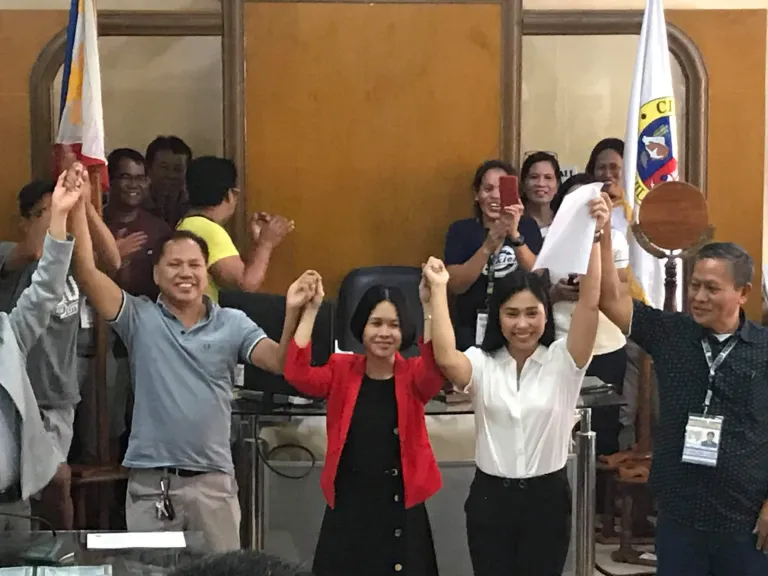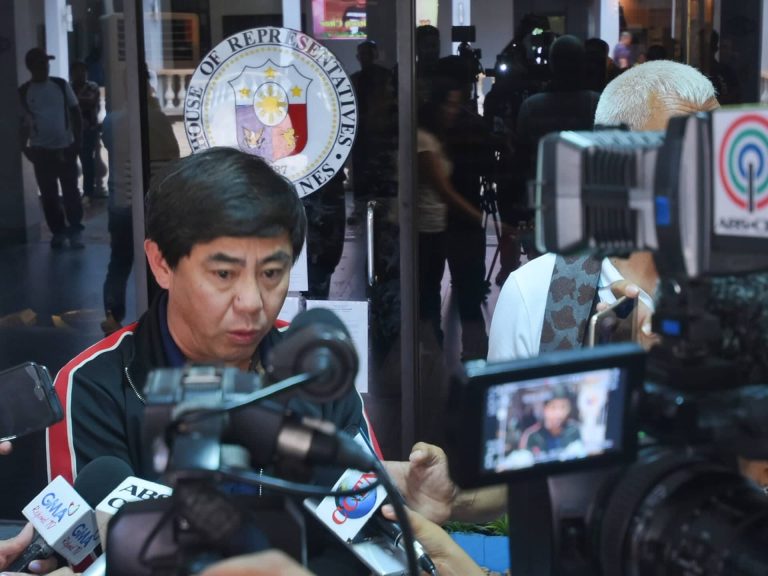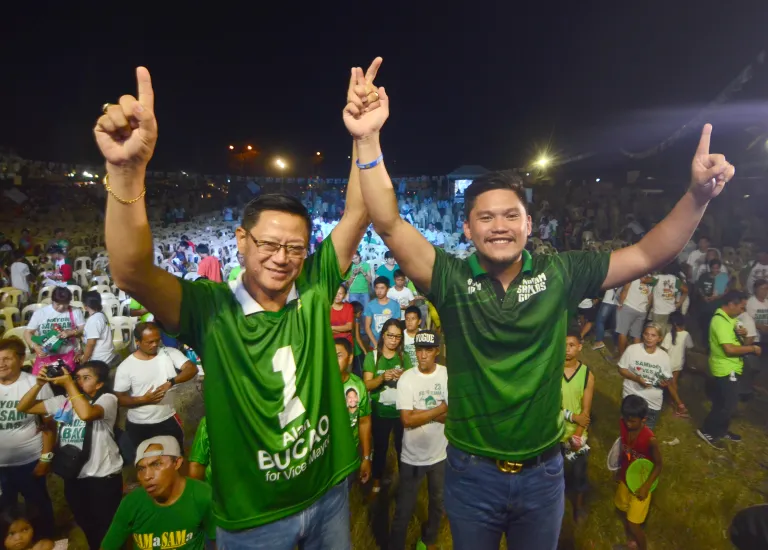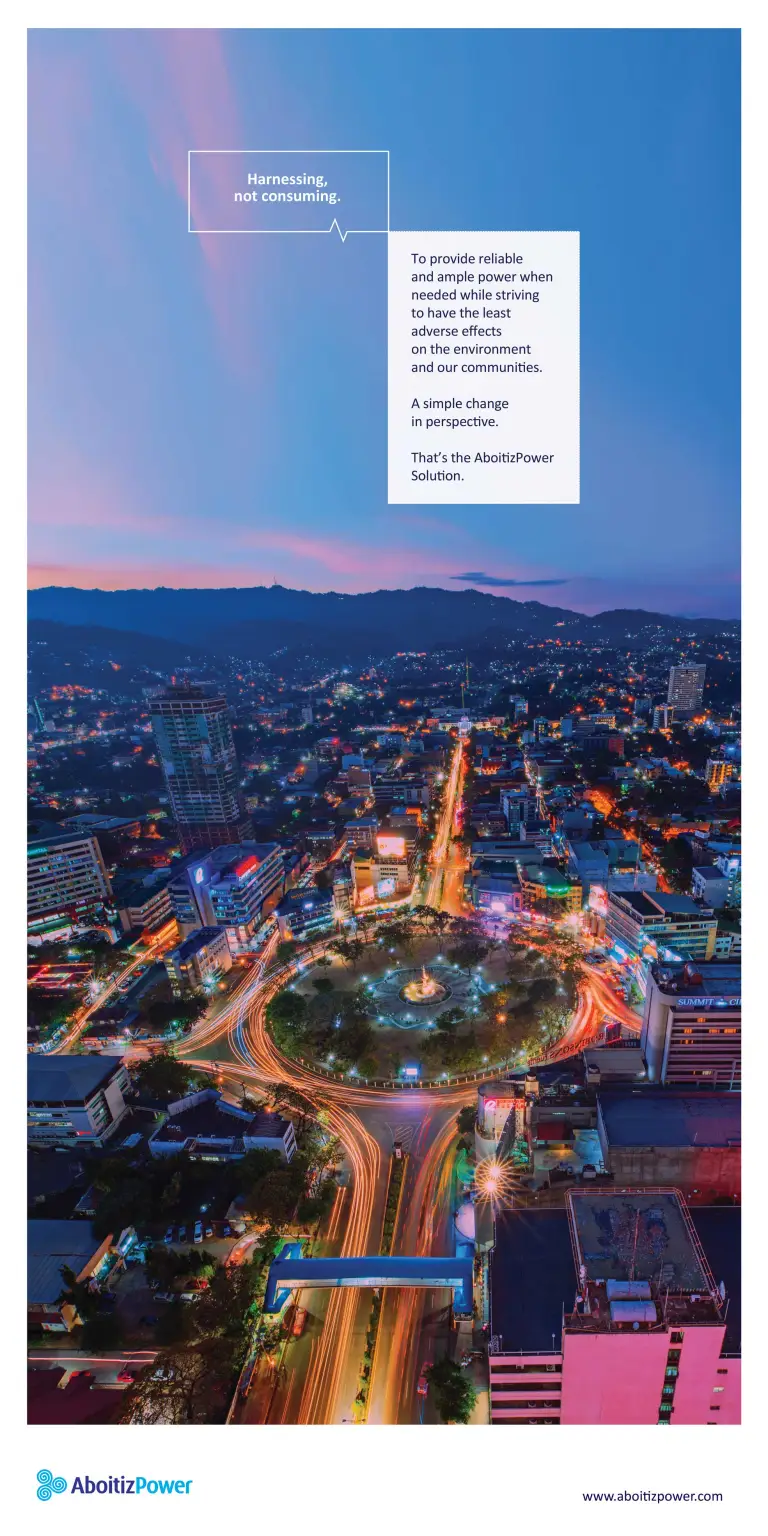How Metro mayors and the governor deal with media
Covering local governments
How Metro mayors and the governor deal with media
KEVIN A. LAGUNDA
July 26, 2019
Most elected public officials affirm the often-avowed policy of staying “open and transparent” to the public through media. But, as new leaders in their respective local governments, they may modify p.r. method or style and degree of press access, for the LG official to “transmit effectively” his message.
It helps not just the working press but also news consumers to be familiar with how news sources manage relations with media.
THE new mayors of Lapu-Lapu City and Cebu City — Junard “Ahong” Chan and Edgardo Labella — promise they will be available to reporters for interviews. Evading inquiries from journalists is not their brand of politics, they say.
Valdemar Chiong, returnee mayor of Naga City, had a bad experience with a reporter but will still hold press conferences “when necessary.” Talisay City Mayor Samsam Gullas will grant “regular” press-cons. Mandaue City’s Jonas Cortes, another returnee mayor, may shed off his previous habit of rarely talking with media before his new term, he had stint at City Hall and one term in Congress.
The returnee governor, Gwen Garcia, a p.r. believer, is expected to hold press-cons and interviews as often as she sees need for them.
Cebu City: no press credentials
Taking cue from the 1987 Constitution, which declares that “public office is a public trust,” Cebu City’s Labella says he must inform his constituents through the media: mainstream and social network sites. The lawyer and former Ombudsman investigator, councilor and vice mayor says he will be accessible to City Hall beat reporters.
Labella says he can be interviewed in person or through cell phone. “On matters of public concern, the people should not be deprived of information,” Labella says. If he is in his office, he prefers to be interviewed in the morning, around 11.

His predecessor Tomas Osmeña, whom then vice mayor Labella defeated in the 2019 elections, stopped conducting press conferences in 2018 just after he received a presidential tongue-lashing in a Mandaue City forum. When Osmeña was still holding press-cons in 2016, he banned then Cebu Daily News senior reporter Jose Santino Bunachita, for news stories he did not like but did not specify.
As The Freeman report on the ban said, “Over 25 minutes into the press conference, the reporters asked Osmeña about his reason for shutting out Bunachita, Osmena’s reply: “The reason behind it? I don’t have to give any reason. He knows. If he doesn’t know, that’s his problem. I’m not going to give specifics. .. I don’t want to get into a running battle with him on media, basta, if he doesn’t know, that’s his problem.”
Osmeña often hit back at his media critics on his Facebook page managed by his son, Miguel. He had filed libel charges against opinion makers critical of his actions, notably print and broadcast journalist Bobby Nalzaro.
Labella most likely won’t follow Osmena’s media strategy and practices. Giving glimpses of his own tack in handling media, Labella says he will not require reporters to submit their credentials. He also vows not to resort to banning a journalist over story error or faulty handling. He won’t mind if he is slammed by a newspaper columnist or radio commentator. “We should not be onion-skinned,” he says. “I don’t mind being criticized as long as it is not malicious. We are human. We make mistakes.”
Naga: ‘bad experience’
City of Naga Mayor Chiong says he had a bad experience with a reporter who wrote a story that he threatened a barangay official, after a landslide occurred at a sitio in Barangay Tinaan in September 2018. “The story was not true.” Chiong says he was not interviewed before the news was published. He chose not to sue the reporter and her paper after learning that the writer was still new to the job. Chiong says reporters may call him or arrange for a press-con.
“I don’t really hold regular press-cons. When there’s an important issue, I will be available,” he says.

The City of Naga board of canvassers proclaims father and daughter tandem Valdemar and Kristine Chiong as mayor and vice mayor
After he completed his third consecutive term in 2016, Chiong chose not to run for another public office. His daughter Kristine ran for mayor and succeeded him. In the 2019 elections, Chiong ran for mayor with his daughter as running mate; both won and vice mayor.
Lapu-Lapu: ‘Won’t hide’
Lapu-Lapu City Mayor Ahong Chan says he won’t hide from journalists. “You already know who I am, I am very friendly to the media,” Chan says.
Chan, who was Pajo barangay captain, defeated former mayor Arturo “Boy” Radaza, husband of former mayor Paz Radaza. “If media needs me, naa man ko dayon (I will be available right away),” he said.

Lapu-Lapu City Mayor Ahong Chan. (Photo by Allan Cuizon)
Chan says he might hold a weekly press-con but he makes it clear he may still be interviewed as often as needed. “Kon naay mga kinahanglanon gyod, mag press-con ta, naa ra ko,” he said. Just like Labella and Chiong, Chan says he will be “transparent” to his constituents by being “transparent” to media. He will also allow his City Hall department heads to talk with news reporters.
The mayor, who terminated the Radazas’ decades-long control of Lapu-Lapu City Hall, says he will take with him all the department heads when he visits barangays. “If there are problems, they can answer right away,” he says.
Websites of the city governments of Cebu, Lapu-Lapu, Naga, Mandaue and Talisay and the Cebu Provincial Government are up and running. They also have social media pages and public information offices.
When asked if they are willing to release any public document, Labella, Chiong and Chan say they will do so as long as the document does not contain confidential matters and information involving national security.
Mandaue: can be problematic
CJJ reached out to the camps of Mandaue City Mayor Cortes and Cebu Governor Garcia, respectively. They had yet to reply when this report was filed.
Cortes, former mayor and former congressman, defeated his erstwhile political ally and took back the mayor’s seat from Gabriel Luis Quisumbing. Cortes served Mandaue City as mayor for three consecutive terms, from 2007 until 2016, and as sixth district congressman, from 2016-2019.
Two former journalists, who requested anonymity, said they had a hard time in getting press-cons with Cortes personally answering questions. The politician’s department heads often did the talking for him. Reporters could get Cortes’s brief statements only through ambush interviews. It was also not his habit to answer calls or texts from media. On one occasion, in 2016, Cortes showed up for a press-con but that was a few days before election day.
Talisay: through PIO
First-time Talisay City Mayor “Samsam” Gullas has an “open attitude” towards the media.
Samsam, who started his political career as first district congressman in 2013, took the place of his grandfather, multi-term politician Eduardo Gullas. Eddiegul has returned to the House seat the grandson vacated.
SunStar breaking-news editor Justin Vestil said he could get information from the young Gullas through Facebook Messenger or by text message. He could also directly call Samsam’s phone. Samsam, Vestil learned, will hold regular press-cons as Talisay mayor. Samsam has agreed on a weekly press-con, every Thursday, a question-and-answer session. He will also accommodate unscheduled interviews “if there are pressing matters that need my side.”
Samsam won’t prohibit department heads from releasing any public document to the media. But he encourages them to coordinate with his office before releasing the document. “Any information released by the department head must go through the city public information office.”

Talisay City Mayor “Samsam” Gullas with Alan Bucao. (Photo by Alan Tangcawan)
He also promises to release public documents on the city government’s website unilaterally, even without formal request, for easier access not just by the media but also the general public.
As to accreditation of reporters who want to cover Talisay City Hall, Gullas sees no reason for it, saying it is “not necessary.”
On banning or replacing a reporter whose report would place him in bad light, Samsam says he has no plans of doing it.
“I heard during the time of my grandfather’s predecessor that he banned one reporter from covering the mayor’s activities. I don’t plan to follow his example and I’m open to reporters covering me regardless of their political affiliation,” he said.
In the 2013 midterm elections, Eddiegul lost in a major upset to businessman-philanthropist Johnny V. de los Reyes. The elder Gullas reclaimed the mayoral post beating de los Reyes in the 2016 national and local elections. In 2014, de los Reyes’s son John Yre — then the city administrator — filed libel complaints against Gabriel Bonjoc, news reporter of dySS radio before the Cebu City Prosecutor’s Office. A report in The Freeman said John Yre “alleged that he has been the subject of degrading remarks ‘designed to destroy his reputation and removal from office.’” The complaint was eventually dismissed.
Lapu-Lapu: shouting match
In Lapu-Lapu City, Mayor Chan and his predecessor and now the city’s lone district congresswoman Paz Radaza are in the middle of a squabble over the latter’s office at the second floor of the City Hall.
Chan wants to take the congresswoman’s office as his temporary office, but Radaza insisted on staying as the City Council passed an ordinance allocating an office for the district’s representative last June 6, or 24 days before Chan’s assumption of office.
Last July 9, reporters converged in the City Hall to interview Chan. They waited for the mayor starting at 1 p.m.
Two hours later, Ahong still did not show up. It turned out he designated City Legal Officer James Sayson to answer questions on his behalf. According to a print correspondent, a fellow reporter asked about the mayor’s surrogates who are not Lapu-Lapu residents. That led to a shouting match between the journalist and a member of Chan’s camp, a retired journalist.
From July 9 until July 12, the Lapu-Lapu City beat reporters failed to interview Chan. “Wa pa man siya pakita namo human ato (He has yet to face us since the incident),” the correspondent told CJJ.
Capitol: press-con in the afternoon
A former Capitol beat reporter said Garcia often held press conferences in the afternoon. Garcia served as governor for three straight terms (2004-2007; 2007-2010; and 2010-2013).
There were times when Garcia would answer questions by phone, according to a former CDN reporter who now works as correspondent for a national news television station.
“Motubag ra na siya og ganahan siya sa questions. Iteks lang daan (She will answer if she likes the questions. Just text her first the questions),” the reporter said.
Once, in her previous stint as governor, she gave reporters the Commission on Audit report on a controversial issue.

Duterte’s E.O: ‘full disclosure’
On July 23, 2016, President Rodrigo Duterte signed Executive Order (EO) No. 2, which mandates full public disclosure from all offices under the executive branch.
The EO covers “all government offices under the executive branch, including but not limited to the national government and all its offices, departments, bureaus, offices, and instrumentalities, including government-owned or -controlled corporations, and state universities and colleges.” Local government units are “encouraged to observe and be guided” by the EO.
The EO defines information as “records, documents, papers, reports, letters, contracts, minutes and transcripts of official meetings, maps, books, photographs, data, research materials, films, sound and video recording, magnetic or other tapes, electronic data, computer stored data, any other like or similar data or materials recorded, stored or archived in whatever format, whether offline or online, which are made, received, or kept in or under the control and custody of any government office pursuant to law, executive order, and rules and regulations or in connection with the performance or transaction of official business by any government office.”
According to the order, official record refers to “information produced or received by a public officer or employee, or by a government office in an official capacity or pursuant to a public function or duty,” while the public record includes “information required by laws, executive orders, rules, or regulations to be entered, kept and made publicly available by a government office.”
Not inscribed in stone
Media policies and practices of public officials are often not in writing, Pachico A. Seares, SunStar public and standards editor, once noted. “They’re not inscribed in stone, may not even be reduced to writing.” That is because they change media policy or habit at any time, depending upon needs of the situation. “What remains unchanged is the common drive to get maximum publicity for their successes and the least light on their failures.”
And it’s the duty of media, Seares wrote, to cut through the thicket of information supplied by news sources to report as much of the truth as possible for its public to be informed. 
[CJJ interviewed Cebu City Mayor Edgar Labella and, through Flor Querubin, Mandaue City Mayor Ahong Chan on June 19; Naga City Valdemar Chiong on June 7; and, through Justin Vestil, Talisay City Mayor Gerald Anthony Gullas on July 12. Other materials were based on talks with reporters, published articles and other sources.]
